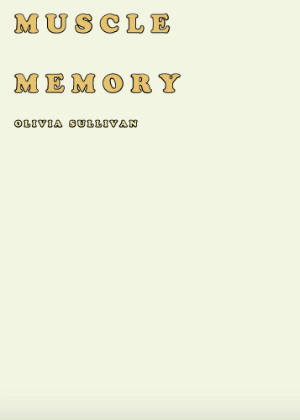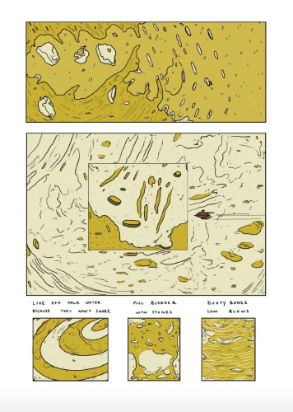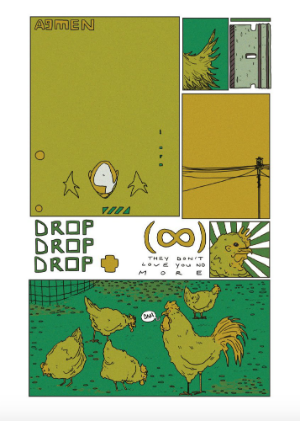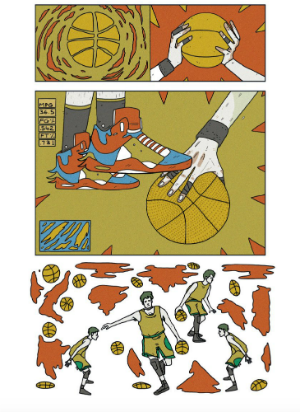In the few short years since we first covered Olivia Sullivan’s sequential art we’ve witnessed her practice evolve from her first tentative short stories in the pages of anthology Dirty Rotten Comics to her current confident (and often cross-media) explorations of the very structure of the form. Sullivan’s abstract offerings and the sometimes oblique, but hypnotic, symbolism of her pages – alongside her precise and careful use of colour – has ensured her experimental comics are some of the most visually striking on the indie scene.
What’s been readily apparent in that time – from her autobiographical I Drank Holy Water to her adaptation of Gogol’s The Nose through to her first longer-form graphic novella SID – is that Sullivan’s enquiring mind has constantly interrogated the very fundamentals of the medium, in a manner that reminds me of the early forays into comics of creators like Karrie Fransman and Gareth Brookes. In short, she creates the comics she wants to create without any concessions to her potential readership. That uncompromising approach to the page is a brave one but it’s also undoubtedly a major reason as to why she’s one of the most intriguing and distinctive artists on the current scene.
Her latest self-published comic Muscle Memory is a collection of short comics and illustration and will be available at this weekend’s Catford Comic and Zine Fair. As with much of Sullivan’s recent work an emphasis is put on the reader to find their own meaning in its pages, ensuring a more concentrated interaction between audience and page and, perhaps ironically therefore, a deeper communicative relationship.
Muscle Memory comprises four shorts along with some single illustration Sullivan juxtaposes the worlds of the microscopic and the macroscopic in ‘Bloat’ (top right), gives us the almost hallucinatory mechanics of motion with an avian motif in ‘Roster Rooster’ (above), evokes blunt physical trauma in ‘Pixel Scuff’ and presents us in ‘2.0’ with a hazily nihilistic monologue that, with the Celtic Sullivan family motto embedded within its panels, perhaps hints at a more personal existential reflection
Comics, as we know, relies heavily on the reader’s interpretation and an ability to fill in the gaps between images for themselves. What Sullivan does is to take that a step further; to ask us not so much to interpret what’s on the page as to immerse ourselves within it, to respond to it on a more multi-sensory level rather than the purely visual. It’s a visceral experience. These are comics that you feel as much as you read; the reactions they evoke in the reader of far more importance and relevance than the search for fragmentary understanding.
Last year I provided a pull quote for Sullivan’s first longer-form comic SID from Good Comics (also making it my ‘Comic of the Festival’ for Thought Bubble that year and selecting it as one of my picks on the ‘The Best Thing I’ve Read All Year’ panel that I sat on at the festival) saying “The remarkable Olivia Sullivan speaks the language of comics with a dialect that is all her own.” Creators who constantly push the very boundaries of our definitions of what comics are and think instead of what comics could be are the creative lifeblood of this medium. Olivia Sullivan is one such practitioner. If you’re not already following her questing explorations of the full potential of the form then Muscle Memory would be an advisable place to start.
For more on the work of Olivia Sullivan visit her website here and follow her on Twitter here. Muscle Memory is available online from her store here priced £3.00 and will be available at the Catford Comic and Zine Fair on Sunday December 9th.
For regular updates on all things small press follow Andy Oliver on Twitter here.

















